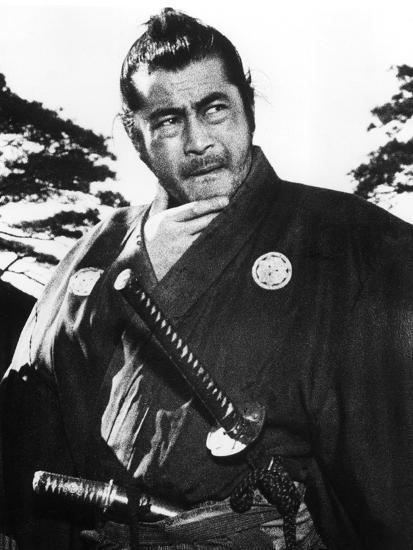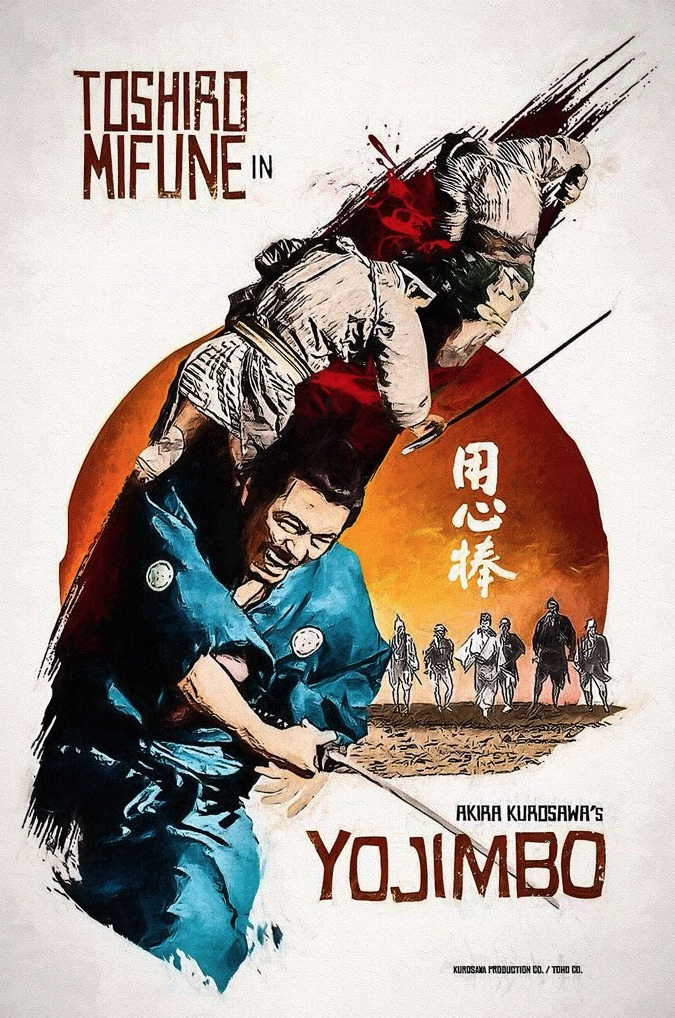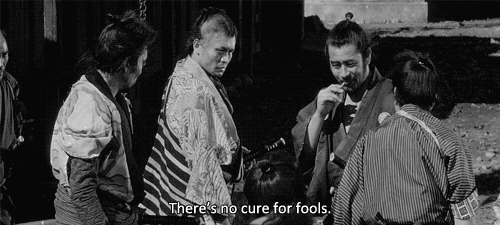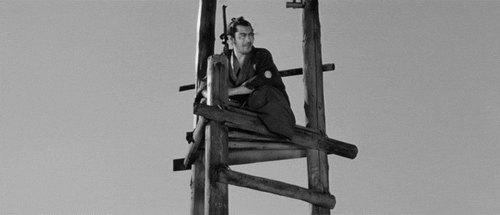Team Experience is celebrating the Centennial of Japan's great movie star Toshiro Mifune for the next couple of nights. Here's Eric Blume...


When the Akira Kurosawa film Yojimbo was released in 1961, he and Toshiro Mifune already had collaborated on over a dozen films, and this collaboration is widely considered one of their greatest. It essentially birthed the character of The Man With No Name, was remade three years later by Hollywood as A Fistful of Dollars with Clint Eastwood, and has had an enduring influence on films for almost sixty years...
Mifune plays a nameless, renegade samurai who arrives in a small town with competing crime lords, and he plays them against each other for the best offer to be their bodyguard.

The articles and term papers written about this film, and its East-West, back-and-forth influences, are legion, but what we’ll mention here is how crucial this film is to the Toshiro Mifune canon.
Mifune, in his collaboration with Kurosawa, accomplishes a great deal with this character. He creates iconography here: in his baggy black kimono, with his hidden arms and manly swagger, he’s the image we’ve come to identify with for samurai action. It’s easy to forget nowadays, when so many lead characters are hero/anti-hero types, that this was not the common rule in 1961. Mifune manages to be iconic without playing to type: his character feels like a fresh creation, one who lives by a moral code, but with no entertaining of fools.
Mifune also, as an actor, doesn’t apologize for this character or his actions. In many ways, he’s a heartless opportunist. In other ways, he’s the most honorable in the film, and certainly the most objective. Mifune plays a straight arc here, without commenting or projecting…he’s always a man trying to make a living, and as an actor he’s not concerned with the audience’s takeaway on this character.
Best of all, Mifune is wonderfully funny in Yojimbo, especially in the first half hour of the picture when he first pits the town against each other, and we get the first round of glorious widescreen images of the town from Kurosawa. Mifune sits on a perch above the crowds in the middle of town, watching the folly below with a vigorous supremacy and sweet bemusement. As all of his instincts of human fatuity are confirmed, the Man With No Name enjoys a moment of pure bliss.

Yojimbo is crafted as entertainment and not a grand statement on the human condition, but Mifune infuses the film with wit, terror, gravitas, and intensity. It’s an essential performance in his career, and a must for anyone who wants to understand his legacy.
Previously
Lynn Lee on Stray Dog (1949)
Nathaniel R on The Hidden Fortress (1958)